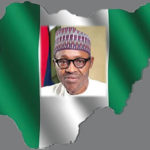
The Emir of Kano, Muhammadu Sanusi II, has described zakat as a veritable tool to fight poverty in the society.
The traditional ruler, at a zakat distribution ceremony organised by Jaiz Charity and Development Foundation, held in his palace in Kano, said if zakat was properly coordinated, it had the potency to reduce poverty in the country.
No fewer than 100 women benefitted from the distribution of items like sewing and grinding machines, deep freezers and cash.
Emir Sanusi recalled that during the reigns of some caliphs, after the death of Prophet Muhammad, no one was poor enough in their domains to receive zakat because the ones distributed in the previous years had made them self-reliant.
The money, he said, were sent to other countries.
“The same feat can be repeated during our own time if the rich people are paying their zakat as and when due and are paying the exact amount. If these funds are administered by competent and God-fearing people, it has the power to eliminate poverty. We have a model that has been practicalised,” he said.
‘Kill those useless bishops’ ―Philippine President
Islam, according to the Emir, is a practical religion.
He commended Jaiz Bank for establishing the foundation for corporate social responsibility (CSR) and thanked the foundation for bringing the distribution to Kano and giving consideration to women.
Emir Sanusi urged the beneficiaries to make good use of the items distributed to them to ensure appreciable impact.
“The number of people that would be dependable will be reduced to the minimum so that we can a peaceful society that will aid development,” he said.
The Chief Executive Officer of Jaiz Charity and Development Foundation, Imam Abdullahi Shuaib, said the foundation made the distribution for women only to tackle poverty at the grass roots.
“The focus of the intervention is basically for the economic empowerment of these women. Some of them are widows, some are married and some of them are singles. The total worth of the zakat we gave out is N5 million and this amount covers items such as 41 sewing machines, 50 grinding machines and eight deep freezers. Cash were given to other women basically for their economic empowerment,” he said.
According to him, men have benefitted in previous editions and would be considered for further disbursements.





